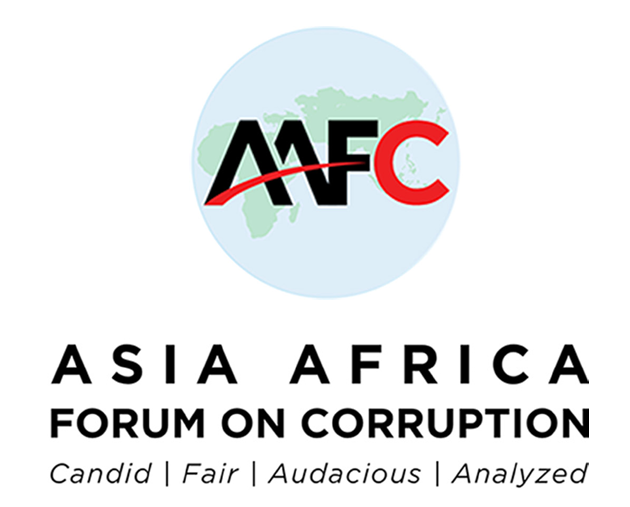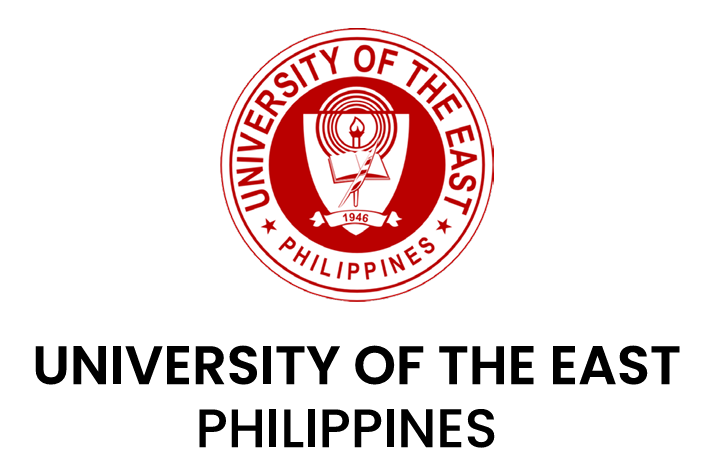
- Phone : +62 878-8618-3645
- Email : info@asiaafricaforumoncorruption.org



The benefits of AAFC-University of The East Executive Master in Fraud and Corruption Prevention (EMFCP) graduate will last throughout the lifetime. Through our alumni network you will have global connections with people with the same DNA with high impact, hold top position in the governments. You will have access to a wide range of events and opportunities for broadening your professional network and sharpening your skills. AAFC-University of The East Executive Master in Fraud and Corruption Prevention (EMFCP) program value lifelong education. As a graduate you are invited to come back and audit courses for a lifetime. This exclusive benefit gives you unlimited access to top-tier faculty while expanding your knowledge or exploring new management topics, at AAFC-University of The East network.
AAFC-University of The East, Executive Master in Fraud and Corruption Prevention (EMFCP) program is a world class program for Asian and African nations that brings together senior government officials, lawyers, law enforcement officers, staff of banking regulatory, insurance regulatory, fintech regulatory, pension fund regulatory, and financial market regulatory bodies, staff of State Owned Enterprises (SOEs) and private sector of Asian and African nations across the globe on a new level in government governance. This is the first of post graduate study of its kind in the world on Fraud and Corruption Prevention. The program transforms Asian and African leaders to think differently and connect with people with the same DNA and discover new ways to prevent fraud and corruption
Executive Master in Fraud and Corruption Prevention (EMFCP)
program students can complete the study hybrid, online and the last 1 weeks off-line at UE (University of The East).
Executive Master in Fraud and Corruption Prevention (EMFCP) program is an exceptional opportunity for you to meet and interact with fellow executives and faculty members from many parts of the world. You will have the opportunity to build profound and dynamic personal networks with the same DNA that will last you a lifetime. The students will emerge in their critical executive roles in fraud and corruption prevention within the government.
Through modules you build your foundation in the very topics that matter most to senior leaders, strengthening your skills and helping you lead with confidence.
The scope of anti-corruption law is broad, encompassing various legal frameworks, policies, and enforcement mechanisms aimed at preventing, detecting, and punishing corrupt practices in both public and private sectors. Anti-corruption laws typically address acts such as bribery, embezzlement, fraud, extortion, abuse of power, money laundering, and other illicit practices aimed at personal gain or the manipulation of institutional integrity.
Bureaucratic reforms refer to the systematic changes made to the structure, procedures, and functioning of governmental agencies in order to improve efficiency, accountability, and transparency. Reforms often aim to reduce red tape, streamline decision-making, enhance service delivery, and curb corruption. The scope of bureaucratic reforms regulations can be broad, covering various sectors and levels of governance. Below is a comprehensive outline of the potential scope for such reforms:
The scope of digitization, IT-based fraud, and corruption prevention encompasses the use of digital tools, technologies, and strategies to enhance operational efficiency, reduce vulnerabilities, and prevent fraud and corruption in both public and private sectors. With the increasing reliance on digital systems, organizations must adopt robust measures to safeguard data, financial transactions, and internal processes from malicious actors. The comprehensive scope includes a variety of measures, from governance frameworks to technical solutions that detect and prevent fraud, corrup tion, and cybercrime.
Law enforcement reforms and regulations aim to improve the efficiency, accountability, and transparency of police and other law enforcement agencies while ensuring they respect human rights and democratic values. These reforms address the structure, behavior, and practices of law enforcement to improve their relationship with communities, enhance public safety, and minimize abuses of power. Law enforcement reform is often driven by incidents of misconduct, public outcry, and demands for greater accountability.
Effective tax and government revenue management is crucial for ensuring fiscal sustainability, equity, and efficiency in public finance. A comprehensive trade policy outlines a country’s approach to international trade, balancing the interests of various stakeholders, including businesses, consumers, and the government. Here’s an overview of key components that can be included in a country’s trade policy:
Regulating natural resources and the extractive industries—such as mining, oil, gas,
and forestry—is crucial for sustainable development, environmental protection, and
social responsibility. A comprehensive scope of regulations in this area encompasses
various aspects, including environmental standards, economic considerations,
community engagement, and governance.
Infrastructure regulations encompass a broad range of guidelines and policies aimed
at the planning, development, maintenance, and operation of infrastructure systems.
These regulations ensure that infrastructure projects are safe, sustainable, and benefi
cial to society.
Food reliance governance and food sovereignty regulations are critical for ensuring sustainable food systems, protecting local communities, and enhancing the resilience of food supplies.
A comprehensive scope of business and investment license regulations involves
outlining the key aspects of licensing requirements, processes, and compliance
obligations that govern business operations and investments.
Public procurement integrity regulations are essential for ensuring transparency,
accountability, and fairness in the acquisition of goods, services, and works by
government entities. These regulations help to prevent corruption, promote efficient
use of public resources, and build public trust in government operations.
Banking regulations is the framework of laws, rules, and supervisory mechanisms that
govern the activities, structure, and operations of banks and other financial
institutions. The primary goals of banking regulation are to ensure the stability of the
financial system, protect consumers, promote fair competition, and prevent financial
crimes such as money laundering and fraud. The scope of banking regulation is
comprehensive and covers a wide array of areas, from risk management and capital
adequacy to corporate governance and transparency.
Insurance regulations is a set of laws, rules, and supervisory frameworks that govern
the activities and operations of insurance companies. The goals of insurance
regulation include ensuring the solvency of insurers, protecting policyholders,
promoting fair competition, and preventing fraud. The scope of insurance regulation is
broad and covers various aspects of the insurance industry, including capital
adequacy, risk management, consumer protection, and market conduct.
Financial technology (FinTech) regulations play a critical role in managing the risks and
ensuring the safety, security, and integrity of financial services delivered through
innovative digital platforms. With the rapid rise of FinTech companies offering services
like digital payments, blockchain solutions, cryptocurrency, peer-to-peer lending,
robo-advisors, and more, the regulatory framework must evolve to address the unique
challenges presented by these technologies. The scope of FinTech regulations is broad,
covering areas like consumer protection, cybersecurity, anti-money laundering (AML),
financial stability, market integrity, data privacy, and innovation.
Pension fund regulations are crucial for ensuring the safety, sustainability, and fairness
of pension systems that millions of people rely on for financial security after
retirement. These regulations cover the governance, management, investment
practices, and reporting obligations of pension funds to protect beneficiaries and
ensure that funds are managed responsibly. The scope of pension fund regulations is
comprehensive and typically involves oversight of fiduciary responsibilities,
investment practices, risk management, transparency, and protection of beneficiaries.
Stock exchange regulations encompasses a set of laws, rules, and oversight
mechanisms designed to ensure the orderly functioning of stock exchanges, protect
investors, promote transparency, and maintain the integrity of the capital markets.
Regulatory bodies oversee the conduct of stock exchanges, brokers, traders, listed
companies, and investors to prevent market manipulation, insider trading, and other
malpractices. The scope of stock exchange regulation is broad and covers multiple
facets of securities trading, corporate governance, risk management, and disclosure
requirements.
Strategies, GRC & Fraud and Corruption Prevention
A well-defined business strategy is critical for success in the private sector, guiding
the organization toward achieving its goals and sustaining long-term competitive
advantage. A comprehensive strategy integrates market positioning, financial planning,
resource allocation, innovation, and adaptability to changing business environments.
An Integrated GRC framework in the private sector ensures that Governance, Risk,
and Compliance (GRC) functions are coordinated and managed holistically across the
organization. A comprehensive scope of GRC for the private sector, covering
governance, risk management, and compliance activities, integrated with a focus on
operational efficiency and strategic objectives.
An Integrated GRC framework in the private sector ensures that Governance, Risk,
and Compliance (GRC) functions are coordinated and managed holistically across the
organization. A comprehensive scope of GRC for the private sector, covering
governance, risk management, and compliance activities, integrated with a focus on
operational efficiency and strategic objectives.